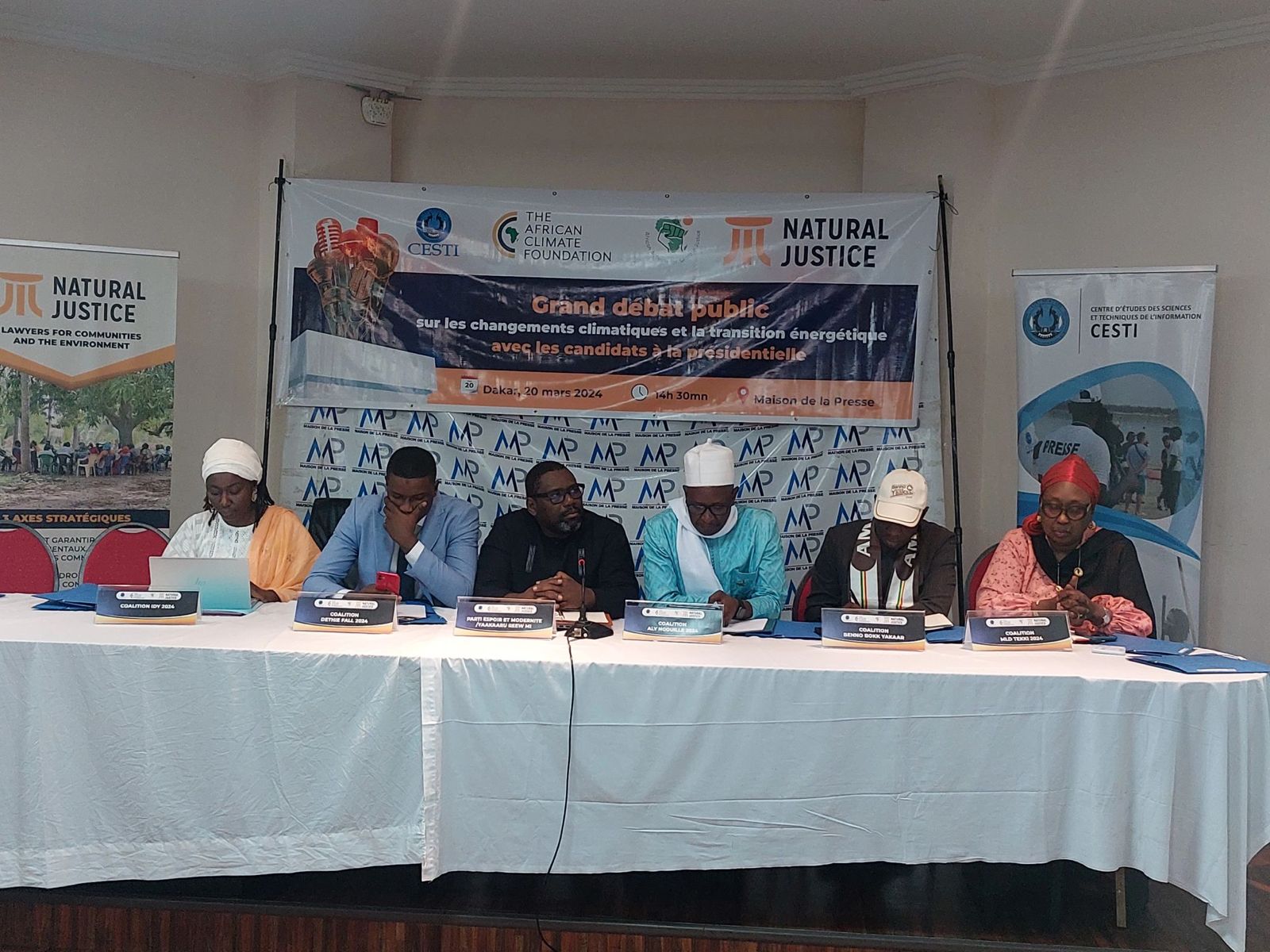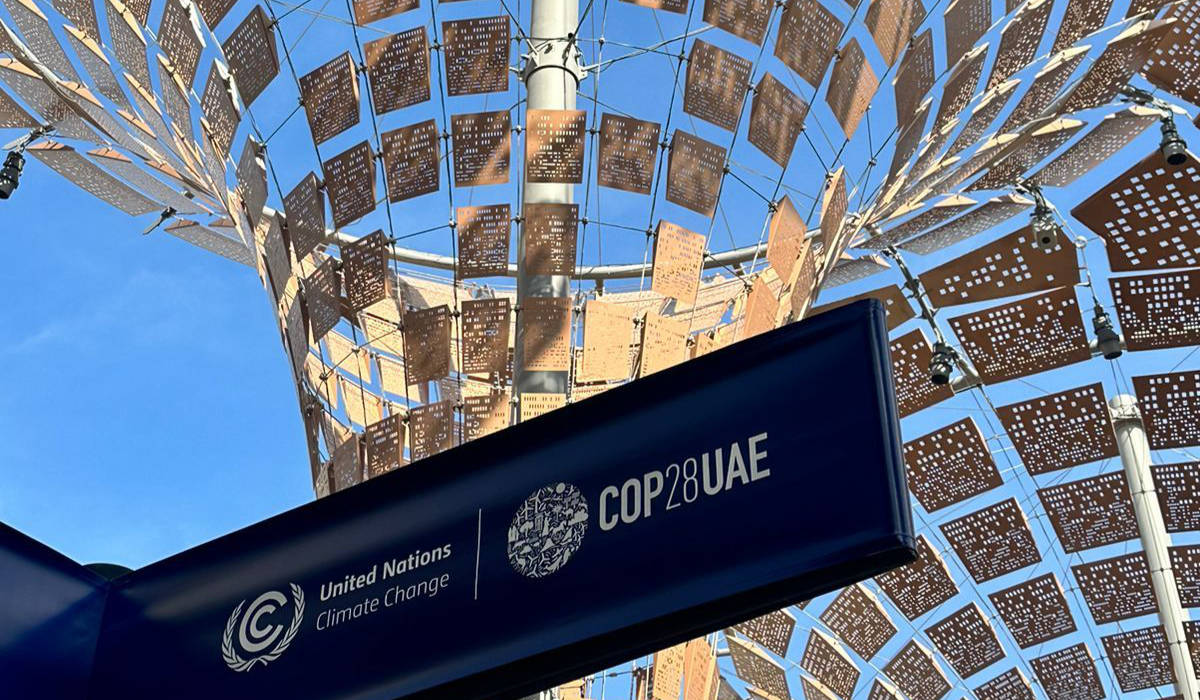A coalition of climate philanthropies this week announced an investment of $500 million over the next three years, to accelerate a just and equitable energy transition in low and middle-income countries; this while boosting sustainable development and creating new economic opportunities. Bloomberg Philanthropies and Children’s Investment Fund Foundation (CIFF) were included in the list of leading philanthropic organisations to fill a gap in climate philanthropy funding in the south.
The announcement and further discussion took place during a COP27 side event, Catalytic Collaboration: Philanthropic Opportunities to Support Just Transitions in Africa, which brought philanthropy, development and finance specialists and energy practitioners together to discuss philanthropy’s prospects in Africa.
Co-hosted by the African Climate Foundation (ACF) and Bloomberg Philanthropies, with the United Nations Economic Commission for Africa (UNECA) and the International Renewable Energy Agency (IRENA).
Drop in the ocean
Despite an increase in grants, philanthropic funding to mitigate the effects of climate change still received the short end of the stick of global funding. And nowhere is the gap in funding more apparent than in Africa.
Africa accounts for only 5% of total philanthropic funding for climate mitigation causes, a delegation at the Africa Pavilion heard. But its flexibility and ability to connect to communities on the ground could make a significant difference in the energy transition.
Irene Karani from CIFF said the financial flows to Africa were a drop in the ocean and called the situation concerning. According to her, the total philanthropic support in the world amounted to $12 billion – Africa only received $45 million of that spend.
Since 2015, climate philanthropy funding to the African continent has been rising by an average of 30% annually, reaching an estimated $140 million in 2021, according to a 2022 report by the Climate Policy Initiative. More broadly, annual climate finance flows in Africa stand at only $29.5 billion — far short of the $277 billion per year that Africa needs to implement its Nationally Determined Contributions and meet its 2030 climate goals.
Africa accounted for the smallest share of global greenhouse gas emissions but was disproportionately impacted by the consequences of climate change. Africa did not cause the problem, Karani said. But the continent needed the investment, also from philanthropy.
“Africa kept being told we must leapfrog. But how do you leapfrog with a drop in the ocean, a drop by which I mean is insignificant? How will Africa be able to leapfrog into a just energy transition?”
Saliem Fakir, executive director of the ACF, also agreed that foundations could be doing much more in Africa.
When mentioning the $500 million philanthropic investment, Fakir said that “this mobilisation of pooled funds to support climate action goes a long way to fill the gap of climate philanthropy funding in the south. It will strengthen southern leadership and localisation of solutions especially in Africa where the gap of funding is the biggest.”
“This is a crucial time for philanthropy to scale its support to southern partners working to lead during remarkably challenging times,” said Izabella Teixeira, former Minister for the Environment of Brazil, Co-Chair of the International Resources Panel – UNEP and UN-DESA Board member after the announcement. “The world needs southern leadership to prove that development priorities and climate priorities go hand in hand and build precedents for a truly just and equitable clean energy transition.”
Leapfrogging
Karani said for Africa to leapfrog someone had to start taking risks and the $500 million investment was a step in that direction.
Elizabeth Press from IRENA also said that Africa was nowhere close to the investment it needed. Some of the leapfrogging will happen through entrepreneurs and their innovation, she said.
“Innovation is important, we support projects that can be transformative. And innovation takes different forms and shapes. Innovation trends in the US and Canada, are not going to work for Africa. It needs to be homegrown.”
Catalytic funding
Karani also reiterated that philanthropic funding cannot replace government, or multi or bilateral funding. “It is meant to ignite and catalyse other funding.”
Zira Quage – the Nigeria Focal Person for the ACF, also highlighted the role of philanthropy in funding, saying that it could never replace other avenues of funding. He said philanthropic contributions helped to raise the climate ambitions of countries such as Nigeria.
Press said the catalytic nature of philanthropic funding is that it also brings other partners to the table.
Bloomberg Philanthropies’ Priya Shankar agreed that philanthropic funding should be catalytic and was certainly not a replacement for government or private funding.
Shankar said she was surprised by how low investment in Africa was. She explained that her organisation was expanding on the continent because there is so much untapped potential. “Philanthropy can play a unique role here.”
Partnering up
Shankar named two strategic pathways that Bloomberg would be following. Firstly, the organisation wanted to invest in technological capacity building. They aimed to provide technical assistance in policy building while engaging with local communities to help build capacity. Bloomberg was partnering with the ACF to achieve this.
Secondly, the organisation was working closely with the Glasgow Financial Alliance for Net Zero (GFANZ) a global coalition of 500 leading financial institutions committed to speeding up the decarbonisation of the economy and mobilising the needed capital to accelerate the energy transition.
“Philanthropy can play a role here in project preparation, as well as a bridge building role, bringing together players,” Shankar said. “Philanthropy can connect players in this eco-system.”
On the ground
Fakir also appealed for more resources to flow to Africa and to African-led organisations embedded in communities.
“We can move faster, be more flexible. We can respond better to situations in communities. It is harder to that with bilateral funding such as that coming from France or Germany,” he said.
Philanthropic funding allowed more flexibility, Fakir said. “With philanthropic funding a lot of it is taking calculated risks and trusting people on the ground to make political and technical decisions. It is all about understanding local context, particular politics that are at play.”
He said many believed that climate funding was technical. “Actually, you have to do a lot of groundwork building legitimacy for foundations.”
Fakir also believed that localised communities had a better sense of what local people will need when climate adaptation, resilience, and green energy projects are implemented.



